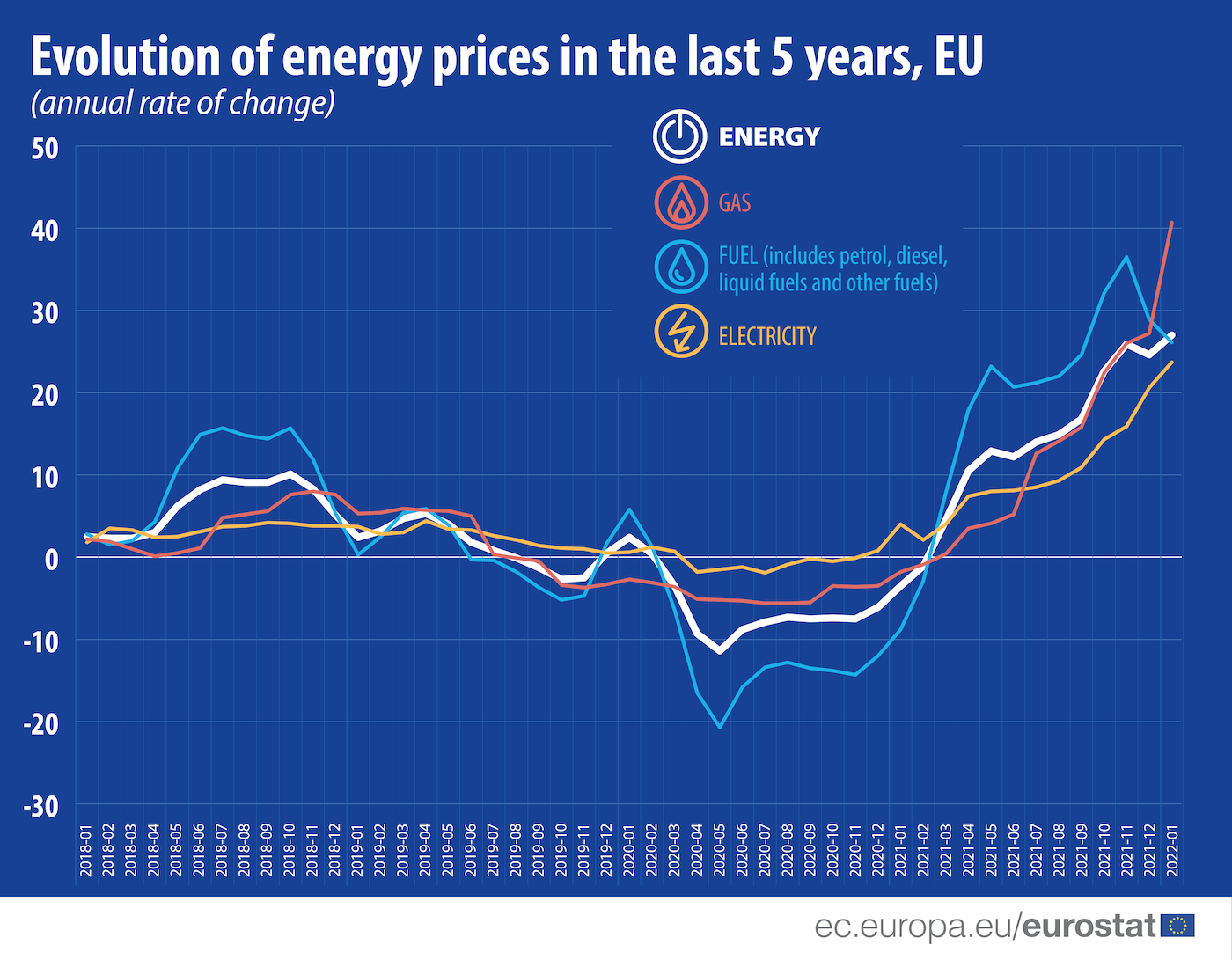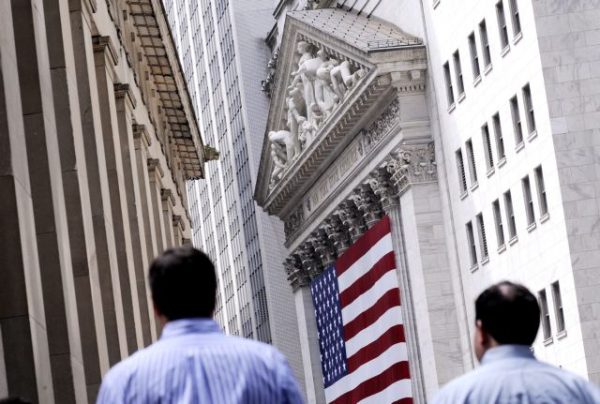
Energy annual inflation in the EU hit 27% in January 2022, continuing the upward trend. This information comes from data published by Eurostat recently.
Following its lowest rate in five years in May 2020 (-11%), energy inflation started to increase but continued to show negative rates up until February 2021, varying between -9% and -1%. From March 2021, energy inflation was positive and increased almost continuously, reaching 26% in November 2021 and 27% in January 2022.
The inflation rate for energy is the highest since the Harmonised Index of Consumer Prices (HICP) was first published in 1997. In October 2021, it surpassed the highest point recorded so far: 17% in July 2008.
Looking at the sub-components of energy, gas reached its highest point in January 2022 at almost 41%, a 13.5 percentage point (pp) increase compared with the previous month, significantly above other energy sources – fuel (including petrol, diesel, liquid fuels and other fuels) at +26% (-2.8 pp) and electricity at +24% (+3.1 pp).
During the COVID-19 pandemic, inflation rates for fuel were more volatile than for electricity and gas. Inflation rates for gas and electricity hit negative values between April and December 2020, but were more stable, averaging -5% for gas and -1% for electricity. Fuel however hit a low point in May 2020 (-21%) and then peaked at +37% in November 2021.

Among the EU Member States, Belgium (67%) and the Netherlands (58%) registered the highest energy inflation rates in January 2022, followed by Lithuania (43%), Estonia (41%) and Greece (40%). At the other end, the energy inflation rate was 0% in Malta, with Croatia and Portugal following, both with 12%.
Latest News

German Ambassador to Greece Talks Ukraine, Rise of Far Right & Tariffs at Delphi Economic Forum X
Commenting on the political developments in his country, the German Ambassador stressed that it was clear the rapid formation of a new government was imperative, as the expectations across Europe showed.

Athens to Return Confiscated License Plates Ahead of Easter Holiday
Cases involving court orders will also be excluded from this measure.

Servicers: How More Properties Could Enter the Greek Market
Buying or renting a home is out of reach for many in Greece. Servicers propose faster processes and incentives to boost property supply and ease the housing crisis.

Greek Easter 2025: Price Hikes on Lamb, Eggs & Sweets
According to the Greek Consumers’ Institute, hosting an Easter dinner for eight now costs approximately €361.95 — an increase of €11 compared to 2024.

FM Gerapetritis Calls for Unified EU Response to Global Crises at EU Council
"Europe is navigating through unprecedented crises — wars, humanitarian disasters, climate emergencies," he stated.

Holy Week Store Hours in Greece
Retail stores across Greece are now operating on extended holiday hours for Holy Week, following their Sunday opening on April 13. The move aims to accommodate consumers ahead of Easter, but merchants remain cautious amid sluggish market activity.

Green Getaway Ideas for Easter 2025 in Greece
Celebrate Easter 2025 in Greece the sustainable way with eco-farms, car-free islands, and family-friendly getaways rooted in nature and tradition.

Civil Protection Minister Details Summer Firefighting Plans at Delphi Forum
At the 10th Delphi Economic Forum, Minister of Climate Crisis and Civil Protection Yiannis Kefalogiannis discussed Greece's plans for the upcoming fire season.

How Shops and Markets Will Operate During Easter Holy Week
The Easter holiday schedule has been in effect since April 10, with retail stores open Palm Sunday, and most supermarkets also operating to meet consumer demand for Easter shopping

Why Is the French Aircraft Carrier Charles De Gaulle in Piraeus?
Docking in Piraeus after a four-month deployment in the Indo-Pacific region, the admiral of the aircraft carrier the Charles de Gaulle says, "Greece is our best partner in the Mediterranean."









































 Αριθμός Πιστοποίησης
Αριθμός Πιστοποίησης